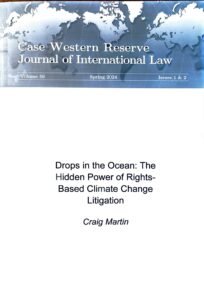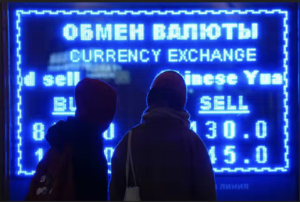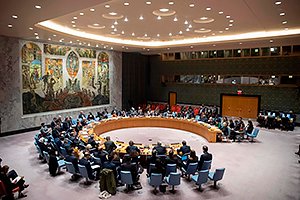 My law review article exploring the influence and impact of rights-based climate change litigation has now been published in the Case Western Reserve Journal of International Law, and the full article can be downloaded from SSRN. The abstract is posted below:
My law review article exploring the influence and impact of rights-based climate change litigation has now been published in the Case Western Reserve Journal of International Law, and the full article can be downloaded from SSRN. The abstract is posted below:
An increasing number of legal challenges to government climate change policies are being advanced on the basis that states are violating the human rights or constitutional rights of applicants. A number of high-profile cases in Europe have upheld such claims and ordered governments to adjust their policies. But questions remain regarding how effective such rights-based cases may be in the effort to enforce climate change law obligations or encourage government responses to the crisis. This Article explores how such rights-based cases may exercise greater influence than is typically understood.
After explaining briefly the relevant human rights and climate change law, this Article examines in some detail a sample of rights-based climate cases that reflect a common pattern of features that provide the basis for such an explanation. The cases illustrate the incorporation of both international human rights law norms, and international climate change law obligations and standards, which are used to assess the legitimacy of government climate change policy. The courts increasingly rely upon the science of climate change institutions and the arguments and doctrines developed by foreign courts and international tribunals, including new doctrines for rejecting typical “drop in the ocean” causation and justiciability arguments traditionally relied upon to dismiss climate change cases.



